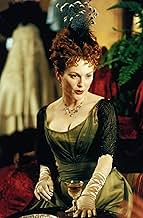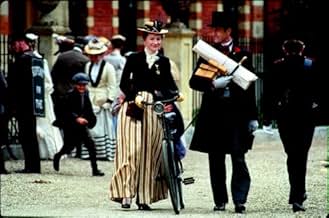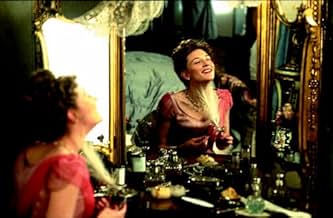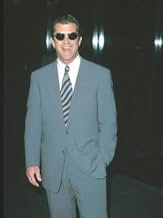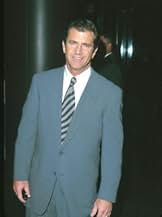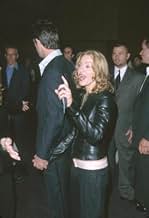London 1895: Cabinet minister, Sir Chiltern, and bachelor, Lord Goring, are victims of scheming women.London 1895: Cabinet minister, Sir Chiltern, and bachelor, Lord Goring, are victims of scheming women.London 1895: Cabinet minister, Sir Chiltern, and bachelor, Lord Goring, are victims of scheming women.
- Nominated for 3 BAFTA Awards
- 4 wins & 17 nominations total
- Director
- Writers
- All cast & crew
- Production, box office & more at IMDbPro
Featured reviews
One of good adaptations. For performances - Rupert Everett as the inspired choice for each "translation" of Oscar Wilde universe - but, in same measure, for a sort of freshness of a case of inspired use of the nuances of Wilde humor. A film about a man and his secrets and the prices of confidence. Seductive. And simple. And, maybe, lovely.
7=G=
"An Ideal Husband" is a charming though contrived little 19th century English period comedy with the subtly sardonic sense of humor typical of Oscar Wilde. The film, which deals with the politics of society first, the politics of the heart second, and the politics of the state last, features all the trappings of the period, a solid cast, and a clever script. An amusing and enjoyable watch for those into 19th century English period films.
If I weren't so lazy, I would have checked the original play to see if my favorite line from the movie was in it:
Goring's father: I use nothing but my common sense. Goring: So my mother tells me.
Even if was concocted for the film, that line still contains the essence of Wilde and the essence of all modern British humor, for which, I should say, I'm a major sucker. While watching An Ideal Husband, I didn't object to the lack of suspense as long as Rupert Everett was working his way around those Wilde lines, which he does as well as anyone I've ever heard.
I used to think Stephen Fry was Wilde on earth, but Fry is something wonderfully different -- Everett is Wilde on earth, or at least the actor that Wilde should have had around to deliver those lines when he wrote them. I first saw Everett in The Madness of King George, for which he put on weight. Every review of that film mentioned this; I thought the attention excessive, but when I saw him lying shirtless in a sauna, I understood. The man is, shall we say, cut. I can only imagine the effect of that scene on straight women or gay men -- probably something akin to the effect Greta Scacchi's "I think we're alone now" smile at the end of The Coca-Cola Kid has on me.
An Ideal Husband is full of good performances, with one glaring exception: the usually great Julianne Moore. Her scenes are curiously leaden, and Parker -- whose fault this may be -- has the camera linger over her as though the exposure will convince us how evil she is. The one exception is her scene with Everett, which has a real "Will he sleep with the enemy?" tension. It may be that Moore was just outclassed by the Brits, who are born to this stuff.
Cate Blanchett, whom I've seen in three movies, two of which were British period pieces, continues to amaze me with her range.
The unsung hero of the movie is Jeremy Northam, who takes a thankless role -- the man in the play who isn't the Oscar Wilde figure -- and makes it emotionally compelling. He is responsible for the play's only real suspense and emotion, since the rest is word games, more or less.
All of which leads me to blame the production's shortcomings on its writer/director, Oliver Parker. He seems to have squandered an outstanding cast. The play's final scene is played as a series of French scenes -- a film term for a series of different scenes in the same location -- and this kills any momentum that scene might have had.
Three out of four stars, I say, which makes it better than 90% of the movies out there.
Goring's father: I use nothing but my common sense. Goring: So my mother tells me.
Even if was concocted for the film, that line still contains the essence of Wilde and the essence of all modern British humor, for which, I should say, I'm a major sucker. While watching An Ideal Husband, I didn't object to the lack of suspense as long as Rupert Everett was working his way around those Wilde lines, which he does as well as anyone I've ever heard.
I used to think Stephen Fry was Wilde on earth, but Fry is something wonderfully different -- Everett is Wilde on earth, or at least the actor that Wilde should have had around to deliver those lines when he wrote them. I first saw Everett in The Madness of King George, for which he put on weight. Every review of that film mentioned this; I thought the attention excessive, but when I saw him lying shirtless in a sauna, I understood. The man is, shall we say, cut. I can only imagine the effect of that scene on straight women or gay men -- probably something akin to the effect Greta Scacchi's "I think we're alone now" smile at the end of The Coca-Cola Kid has on me.
An Ideal Husband is full of good performances, with one glaring exception: the usually great Julianne Moore. Her scenes are curiously leaden, and Parker -- whose fault this may be -- has the camera linger over her as though the exposure will convince us how evil she is. The one exception is her scene with Everett, which has a real "Will he sleep with the enemy?" tension. It may be that Moore was just outclassed by the Brits, who are born to this stuff.
Cate Blanchett, whom I've seen in three movies, two of which were British period pieces, continues to amaze me with her range.
The unsung hero of the movie is Jeremy Northam, who takes a thankless role -- the man in the play who isn't the Oscar Wilde figure -- and makes it emotionally compelling. He is responsible for the play's only real suspense and emotion, since the rest is word games, more or less.
All of which leads me to blame the production's shortcomings on its writer/director, Oliver Parker. He seems to have squandered an outstanding cast. The play's final scene is played as a series of French scenes -- a film term for a series of different scenes in the same location -- and this kills any momentum that scene might have had.
Three out of four stars, I say, which makes it better than 90% of the movies out there.
As I left this movie, someone said "How nice to see an intelligent movie!"
The risk going in was that it would be ONLY an intelligent - or at least clever - piece, all period manners and costumes. In fact, with all the Oscar Wilde wit which sounds wonderfully fresh here, there are also rich moments of emotional depth throughout this amusing but also quite moving film.
One theme here - touching in hindsight - is how little it can take to destroy a reputation - Wilde was later to have some of the most painful possible firsthand experience of this. But the central question here, which anchors the humor and beauty that decorate it, is the cost of rigorous, even rigid, honesty. And the growth of the central characters on this point shines through, even through the dance of wit and farce.
Underpinning this is a surprising faith in human nobility, quite in contrast to the ironic persona Wilde maintained. It struck me while watching it both that Wilde had very French characteristics - a continental finesse, the love of repartee - and yet was profoundly an English writer by virtue of his faith in fair play and the bonds of (platonic) male friendship.
In fact, Lord Goring, whose world-weary ways make him something of a surrogate for Wilde, is a distant cousin to Sidney Carton in coming to the defense of a 'nobler' friend even at great (possible) sacrifice to himself. His very lack of seriousness is what makes his efforts on behalf of his friends so moving.
With this, the pure visual beauty of actors like Cate Blanchett and Rupert Everett, matched by sumptuous costumes and sets, adds a sensuous element which, in a lesser film, might have dominated the movie. They, with Minnie Driver in cheeky comic form and Julianne Moore sweetly evil and superbly English, make it a delight both to watch and to savor later as tart food for thought.
The risk going in was that it would be ONLY an intelligent - or at least clever - piece, all period manners and costumes. In fact, with all the Oscar Wilde wit which sounds wonderfully fresh here, there are also rich moments of emotional depth throughout this amusing but also quite moving film.
One theme here - touching in hindsight - is how little it can take to destroy a reputation - Wilde was later to have some of the most painful possible firsthand experience of this. But the central question here, which anchors the humor and beauty that decorate it, is the cost of rigorous, even rigid, honesty. And the growth of the central characters on this point shines through, even through the dance of wit and farce.
Underpinning this is a surprising faith in human nobility, quite in contrast to the ironic persona Wilde maintained. It struck me while watching it both that Wilde had very French characteristics - a continental finesse, the love of repartee - and yet was profoundly an English writer by virtue of his faith in fair play and the bonds of (platonic) male friendship.
In fact, Lord Goring, whose world-weary ways make him something of a surrogate for Wilde, is a distant cousin to Sidney Carton in coming to the defense of a 'nobler' friend even at great (possible) sacrifice to himself. His very lack of seriousness is what makes his efforts on behalf of his friends so moving.
With this, the pure visual beauty of actors like Cate Blanchett and Rupert Everett, matched by sumptuous costumes and sets, adds a sensuous element which, in a lesser film, might have dominated the movie. They, with Minnie Driver in cheeky comic form and Julianne Moore sweetly evil and superbly English, make it a delight both to watch and to savor later as tart food for thought.
I saw "An Ideal Husband" at the Old Vic theater in London, and was surprised at the time how timely a 100 year old play could be.
When I saw the trailers, TV ads and posters for this version, it seemed like an entirely different story--will Rupert Everett get married off. That's certainly a thread in the movie, but in the marketing of this version, they made it appear as if it was the entire wardrobe.
I didn't see the film when it was in theaters because these ads, with their very modern music and fast cutting, made the film look like a joke.
But when it came out on video, I decided to try it, and am glad I did.
The film itself is excellent. Beautifully shot and paced, with an expert cast. Wilde's humor shines through, and the writer-director has done a wonderful job "opening" up the play into a film, without changing anything important. It's a masterful job of translating from stage to screen. It's really so crisply done, and very funny.
In years to come people will realise that this is a fine movie version of this play. And by then, hopefully, they will have either forgotten about the marketing campaign, or hopefully learned from it.
I recommend the film.
When I saw the trailers, TV ads and posters for this version, it seemed like an entirely different story--will Rupert Everett get married off. That's certainly a thread in the movie, but in the marketing of this version, they made it appear as if it was the entire wardrobe.
I didn't see the film when it was in theaters because these ads, with their very modern music and fast cutting, made the film look like a joke.
But when it came out on video, I decided to try it, and am glad I did.
The film itself is excellent. Beautifully shot and paced, with an expert cast. Wilde's humor shines through, and the writer-director has done a wonderful job "opening" up the play into a film, without changing anything important. It's a masterful job of translating from stage to screen. It's really so crisply done, and very funny.
In years to come people will realise that this is a fine movie version of this play. And by then, hopefully, they will have either forgotten about the marketing campaign, or hopefully learned from it.
I recommend the film.
Did you know
- TriviaThe green carnation that Arthur selects for his buttonhole is a subtle homage to Oscar Wilde. Wilde and his "inner circle" of gay friends used to wear green carnations as a way of discreetly displaying their sexuality.
- GoofsAt the reception at the Chiltern's home, Sir Robert is requested to meet the Indian Ambassador. In 1895 India was a British possession and there could not be such an Ambassador who represents only independent states.
- Quotes
Lord Caversham: What are you doing here, sir? Wasting your time, as usual?
Lord Arthur Goring: My dear father, when one pays a visit, it is for the purpose of wasting other people's time and not one's own.
- Crazy creditsThe credits list Oliver Parker, the director, as playing "Bunbury", one of the gentlemen that is seen playing cards with Lord Goring in the Men's Club when Lord Chiltern arrives. Bunbury is also a never-seen character in "The Importance of Being Earnest", the play which is performed in the background of several scenes of this film.
- How long is An Ideal Husband?Powered by Alexa
Details
- Release date
- Countries of origin
- Official site
- Language
- Also known as
- Ідеальний чоловік
- Filming locations
- Production companies
- See more company credits at IMDbPro
Box office
- Budget
- $14,000,000 (estimated)
- Gross US & Canada
- $18,542,974
- Opening weekend US & Canada
- $192,802
- Jun 20, 1999
- Gross worldwide
- $18,542,974
- Runtime
- 1h 37m(97 min)
- Sound mix
- Aspect ratio
- 1.85 : 1
Contribute to this page
Suggest an edit or add missing content


